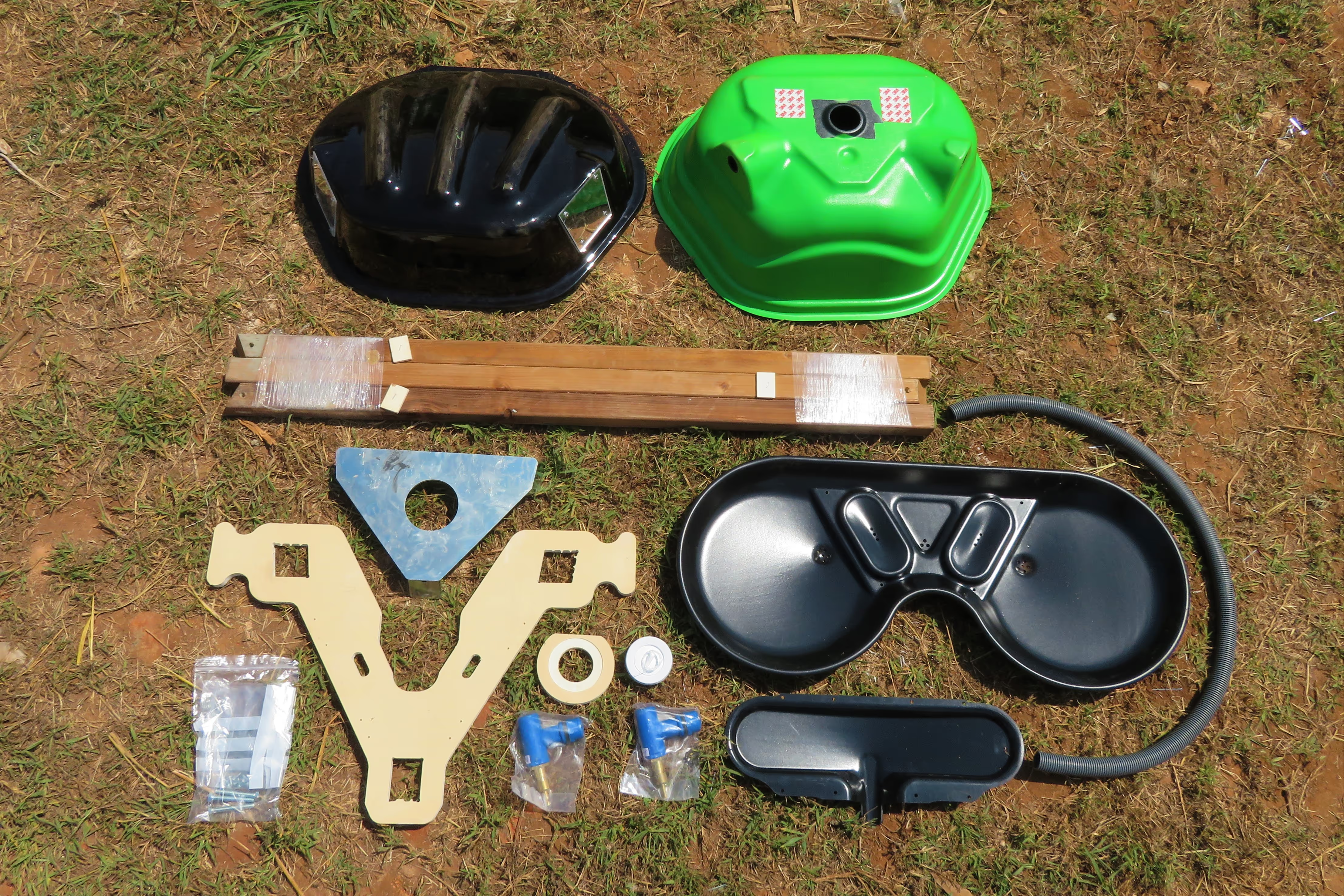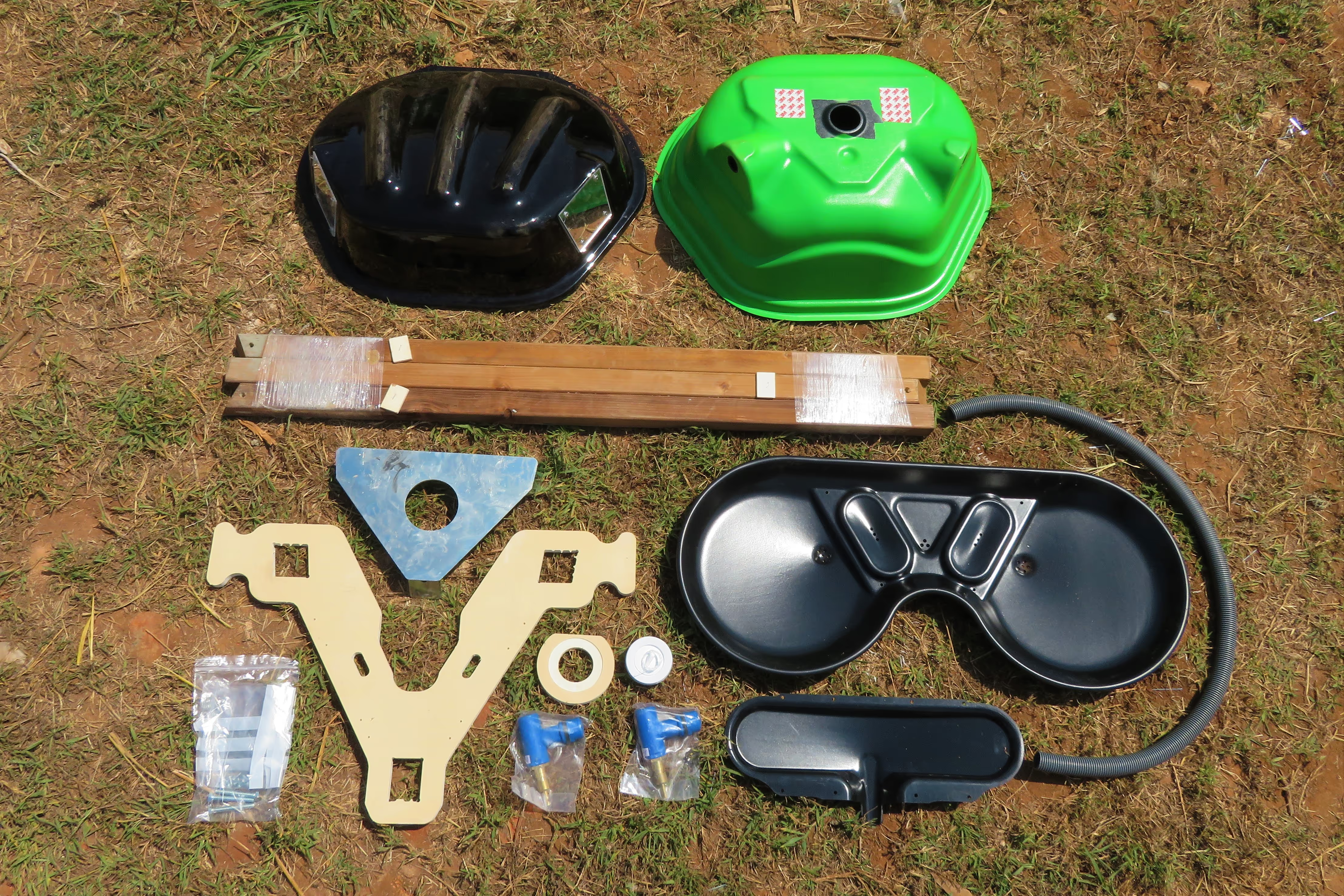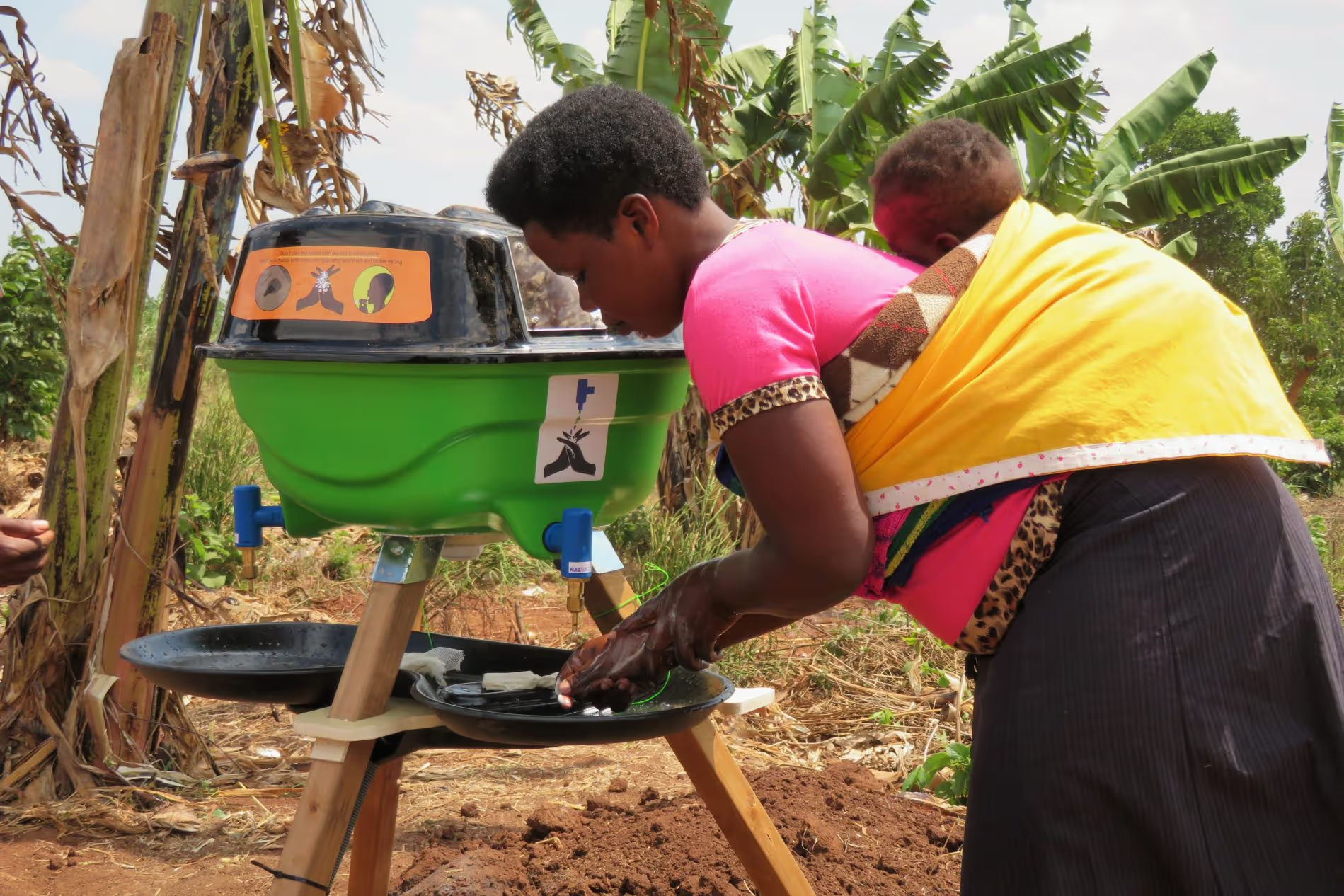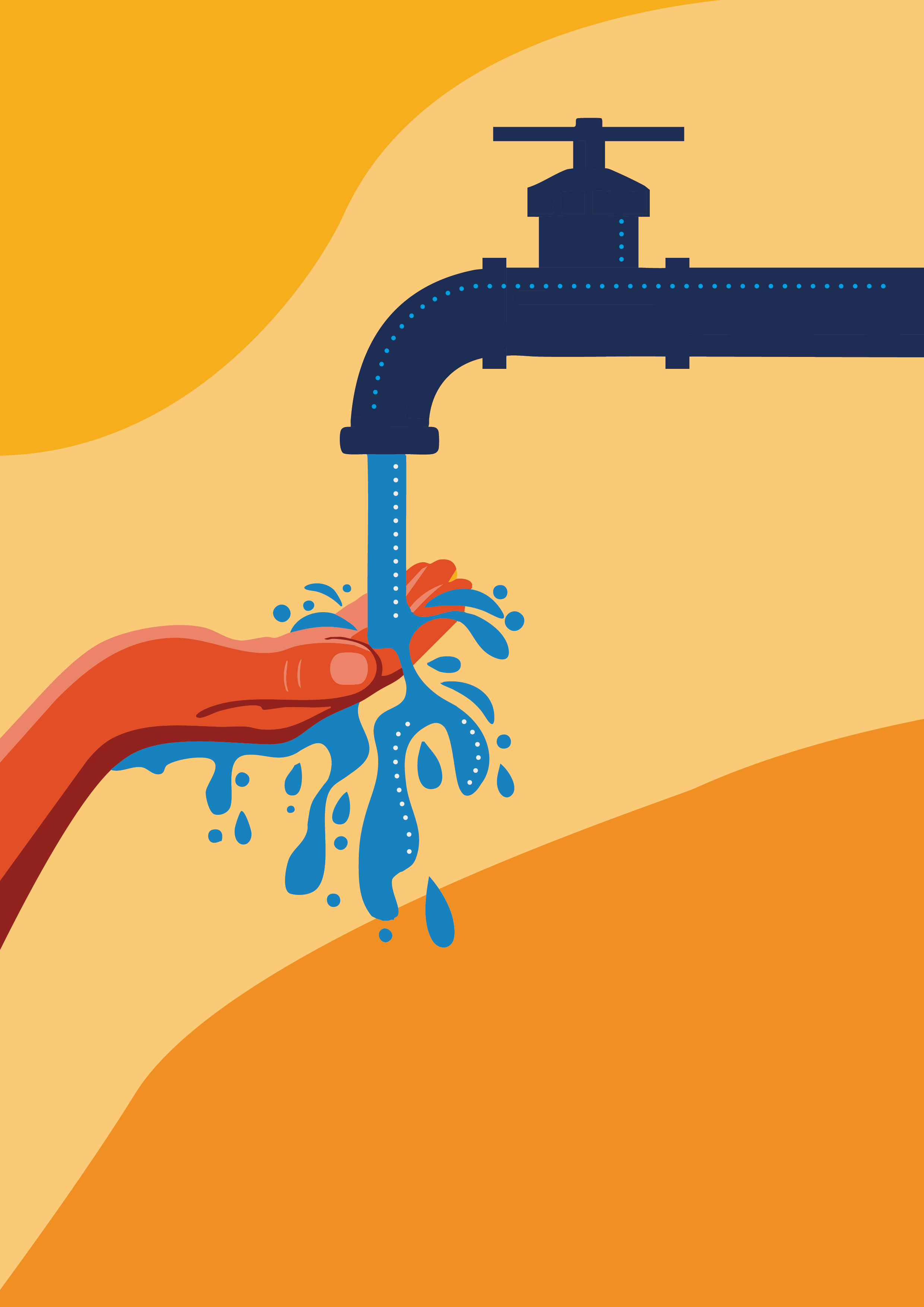Handwashing kit faces its toughest and final test

Kyaka, Uganda, July 2018
It is very dry here at the moment and very dusty. There are little or no hand washing facilities and collecting clean water can be up to a 30-minute walk under the burning sun with little shade. It’s easy to see why most of the Congolese refugees in this camp don’t or can’t wash their hands.
A new camp and a new upgraded prototype, I’m here for the last field test before production of the hand washing kit (watch this video for more information. This time the setting is an acute refugee camp for Congolese seeking refuge from conflict. Taking on board what we learned from the previous field trials, this prototype has a new ‘ridged’ lid which is much more robust, easy to assemble and looks great! The mirrors are now permanently riveted to prevent theft and we updated the instruction manual.
We’ve chosen five different environments to test the kits in this trial: 18 kits spread out in villages with shared latrines (normally two to four homes); four in a registration centre; five in a primary school of 1,600 children; one in a nursery; and two in a medical centre.

We carried out community mobilization and engagement in the selected sites before the trials began. The next step was taking the 30 kits from the Oxfam warehouse to the camp and briefing 16 Oxfam WASH staff on the project before practicing assembling a few kits. The new instruction manual meant the assembly was much quicker than last time and for the next version we’ll only need to make small amendments.
When the handwashing kits were installed, they were embedded into the ground and the holes filled with cement to prevent theft. We dug another hole underneath the kit and filled it with rocks to absorb the drainage water to prevent stagnant water.
We gathered all the villagers to introduce and explain the project, the innovation, and to demonstrate the correct way to wash hands and when to do so. Our worry was that as the water supply was so scarce and far away it may deter people from replenishing the kits with water, but the kits were so well received with excitement and gratitude that I regained my optimism.

The last stop was a small medical centre. Mostly mothers with children and the elderly were queuing under the shade. Roughly 100 people are seen to use the handwashing kit every day, but there is also a water source which will increase the use drastically. After installing the two kits, a family, mother with her baby wrapped on her back, washes her hands, it feels good to see this.
After these three trials and getting to watch people wash their hands, I really believe that this hand washing station engages people with the act of washing more than other current methods do. I watched someone from a distance - washing for 2:40 minutes; using soap; investigating the crevasses between nail and skin; fully engaging with no rush of time, no sense of time; no water wastefully running. As the tap only releases water when it’s pushed up, it is not intended for places with unlimited water supply, it’s designed specifically for the needs of environments like this where water is limited and sanitation needs engagement.
The trial continues as I return home with new insights, refinements to feedback for the final version. We want to minimise cost and maximise efficiency (from fabrication to on-site assemble) whilst maintaining quality. Time to go and meet Matt White (Spark Design) back in the UK who is already working hard on the final design for large scale manufacturing. I can’t wait to see it.
Author: Joel Trotter
Stay updated
Sign up for our newsletter to receive regular updates on resources, news, and insights like this. Don’t miss out on important information that can help you stay informed and engaged.
Related articles
.png)


Explore Elrha
Learn more about our mission, the organisations we support, and the resources we provide to drive research and innovation in humanitarian response.